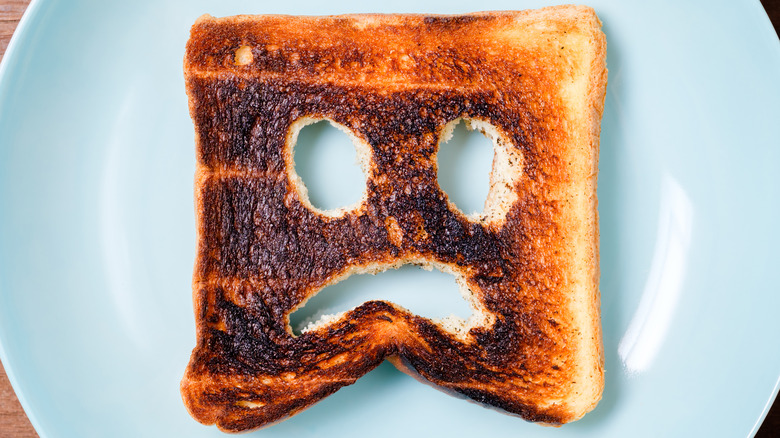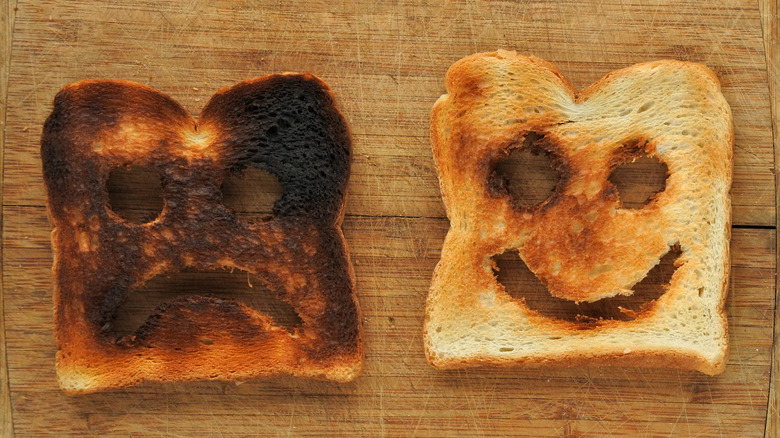Should You Actually Be Concerned About Eating Burnt Toast?
The author Richelle E. Goodrich once equated love to "eating burnt toast and lumpy gravy with a big smile." We'll press pause on that unappetizing lumpy gravy declaration for the purpose of this article (and perhaps forever), but it's safe to say most people enjoy some degree of burntness to their bread. Is there anything better than slathering salted butter on a hot piece of crispy toast, patiently waiting for it to melt into every crevice before that first bite?
If you're not familiar with carcinogens, they are cancer-causing agents that can be found in many forms — from the sun's rays to the air we breathe to processed meats. So what does this have to do with toast? Well, it turns out that some studies have placed crispy, browned foods somewhere on that list (via WebMD).
So before you whip out that toaster at breakfast tomorrow morning, it's worth examining the results of those studies and if that golden hue may actually come with a side of negative effects. Is it possible the very thing that gives toast its deliciousness is causing us harm?
50 shades of burnt
When foods that contain starch, such as bread, are heated to a high temperature at which they achieve a golden color, a chemical called acrylamide is released. This chemical is formed from the sugars in the food reacting with an amino acid. The more burnt the toast is, the more the chemical is formed. Acrylamide has been linked to cancer in lab animals. However, the amounts used in the studies were much higher than humans would typically consume (via FDA).
The jury remains hung on whether consuming burnt, starchy foods is harmful to humans, and further studies are needed (via National Cancer Institute). Whether your preference falls on the lighter or darker end of the golden spectrum probably also comes into play, as the darker your toast is, the higher the levels of acrylamide. Your amount of cumulative exposure to the chemical from all of its sources — such as cigarette smoke, dyes, and plastics — is also a factor (via National Human Genome Research Institute).
So is it safe to pull out that toaster tomorrow? Probably. A piece or two is unlikely to lead to cancer, but moderation is worth keeping in mind. You may want to hold off on the lumpy gravy, though.

